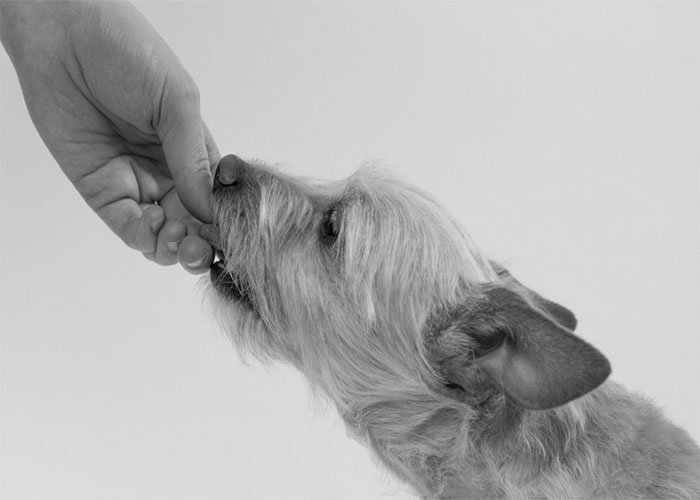Dogs are incredibly intelligent and loyal animals, making them the perfect companions for humans. However, just like humans, they require proper training to ensure they behave well and live harmoniously with their owners. Reward-based training is a popular and effective method of training dogs, as it focuses on positive reinforcement rather than punishment. This approach not only helps in shaping desirable behaviors but also strengthens the bond between the dog and its owner. In this article, we will explore the benefits of reward-based training and how it can motivate your dog to succeed.
The Science Behind Reward-Based Training
Reward-based training is based on the principles of operant conditioning, which is a type of learning where behavior is shaped by its consequences. In simple terms, when a behavior is followed by a pleasant consequence, such as a reward, it is more likely to be repeated in the future. On the other hand, when a behavior is followed by an unpleasant consequence, such as punishment, it is less likely to be repeated. This concept applies to both humans and animals, including dogs.
Understanding Positive Reinforcement
Positive reinforcement is a key component of reward-based training. It involves rewarding your dog for exhibiting desirable behaviors, such as sitting or staying on command. The reward can be anything that your dog finds enjoyable, such as treats, toys, or praise. By consistently rewarding your dog for good behavior, you are reinforcing the idea that this behavior is desirable and should be repeated in the future.
The Importance of Timing and Consistency
Timing and consistency are crucial when it comes to reward-based training. Dogs have a short attention span, so it is essential to reward them immediately after they exhibit the desired behavior. This reinforces the connection between the behavior and the reward. Additionally, consistency is key in ensuring that your dog understands what is expected of them. If you reward your dog for sitting one day and then punish them for the same behavior the next day, it can be confusing and hinder their progress.
Benefits of Reward-Based Training
Reward based dog training has numerous benefits for both dogs and their owners. Some of these include:
- Builds a strong bond between the dog and its owner: By using positive reinforcement, reward-based training creates a positive association with the owner, strengthening the bond between them.
- Encourages desirable behaviors: Instead of focusing on punishing undesirable behaviors, reward-based training focuses on reinforcing good behaviors. This approach helps in shaping desirable behaviors and reducing unwanted ones.
- Promotes mental stimulation: Dogs are intelligent animals that require mental stimulation to thrive. Reward-based training provides this stimulation as they learn new behaviors and receive rewards for their efforts.
- Increases confidence and trust: When a dog is consistently rewarded for good behavior, it boosts their confidence and trust in their owner. This makes them more receptive to learning and trying new things.
How to Implement Reward-Based Training
Now that we understand the science behind reward-based training and its benefits, let’s explore how to implement this method effectively.

Start Early
The best time to start training your dog is when they are still a puppy. Puppies have a natural desire to please their owners, making them more receptive to training. Additionally, starting early allows you to shape their behavior from a young age, making it easier to correct any unwanted behaviors.
Use High-Value Rewards
When it comes to rewards, not all treats are created equal. It is essential to use high-value rewards, such as small pieces of meat or cheese, to motivate your dog. These treats should be reserved for training sessions only, making them more enticing for your dog.
Keep Training Sessions Short and Fun
Dogs have short attention spans, so it is crucial to keep training sessions short and fun. Aim for 10-15 minutes per session, and make sure to end on a positive note. This will keep your dog engaged and eager to participate in future training sessions.
You can also use Positive Training Techniques for an Well-Behaved Dog
Common Misconceptions About Reward-Based Training
Despite its effectiveness, there are still some misconceptions surrounding reward-based training. Let’s address some of these myths and set the record straight.
1: Reward-Based Training is Only for Puppies
While it is true that starting early is beneficial, reward-based training can be used for dogs of all ages. Dogs are constantly learning, so it is never too late to start implementing this method.
2: It Makes Dogs Spoiled and Demanding
Reward-based training does not spoil or make dogs demanding. In fact, it helps in shaping desirable behaviors and reducing unwanted ones. Additionally, by using high-value rewards only during training sessions, you are teaching your dog that good behavior results in a special treat.
3: It Doesn’t Work for All Dogs
Every dog is unique, and what works for one may not work for another. However, reward-based training has been proven to be effective for most dogs, regardless of their breed or age. It is essential to tailor the training to suit your dog’s individual needs and personality.
If your dog is too young, you can use Puppy Training 101
Frequently Asked Questions
What if my dog doesn’t respond to rewards?
If your dog doesn’t seem motivated by the rewards you are offering, try switching to something more enticing, such as a different type of treat or toy. Additionally, make sure to use high-value rewards only during training sessions to keep them special.
Can I use punishment alongside reward-based training?
It is not recommended to use punishment alongside reward-based training. Punishment can create fear and anxiety in dogs, which can hinder their progress and damage the bond between them and their owner.
How long does it take to see results with reward-based training?
The time it takes to see results with reward-based training varies depending on the dog’s age, breed, and individual personality. However, with consistency and patience, most dogs will start showing progress within a few weeks.
Can I use reward-based training for more complex behaviors?
Yes, reward-based training can be used for both simple and complex behaviors. However, for more complex behaviors, it is recommended to seek the help of a professional trainer to ensure proper implementation.
Is reward-based training suitable for all dogs?
Reward-based training is suitable for most dogs, regardless of their breed or age. However, if your dog has a history of aggression or other behavioral issues, it is best to consult a professional trainer before starting any training.
Conclusion
Reward-based training is a highly effective method of training dogs that focuses on positive reinforcement rather than punishment. By using this approach, you can motivate your dog to succeed and strengthen the bond between you. Remember to start early, use high-value rewards, and keep training sessions short and fun. With consistency and patience, you will see your dog thrive and become a well-behaved and happy companion.

